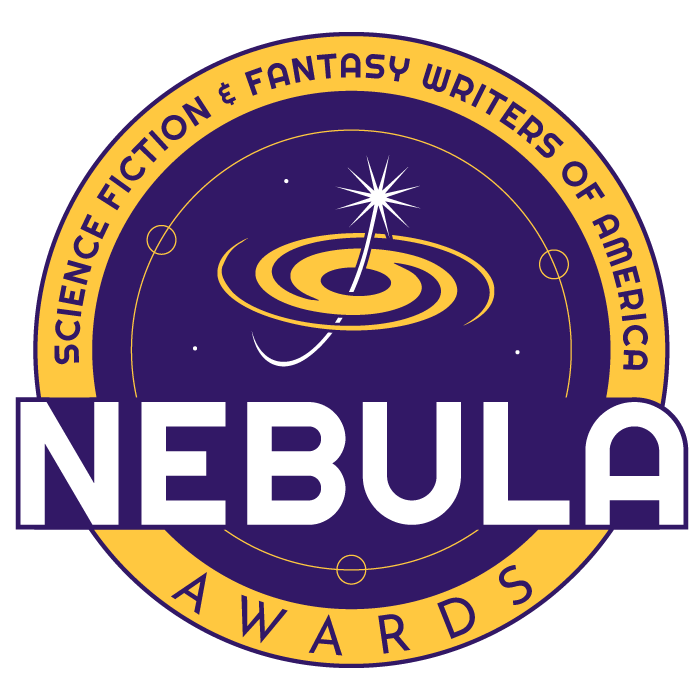This was originally written for the Bloggernacle Times, but since BT doesn’t appear to be coming out of hiatus any time soon, I’m posting it here.
A few months ago, I stayed up until 2:30 in the morning reading. I had not intended to stay up that late, but I was engrossed in a new fantasy novel and I wanted to see how it ended. The novel was Elantris, by Brandon Sanderson, and it’s the best fantasy novel I’ve read in quite a while. (See more reviews of Elantris here.)
Since Brandon is LDS, I figured I could interview him as a way of beginning to shift out of my “less active blogger” status here at Bloggernacle Times. He was kind enough to consent to an email interview, and here are the results:
ERIC: How does it feel to see Elantris on bookstore shelves?
BRANDON: Satisfying. You know, it’s kind of odd. During my years trying to get this book–or ANY book–published, I imagined all the different feelings I might have when I finally saw a book of mine on the shelves. I imagined jumping up and down with joy, perhaps letting out a cry of excitement. However, none of that happened.
For me, that moment happened over two years ago, when Tor called me and told me they wanted to buy Elantris. Since then, the process of publishing the book has been quite time consuming. Now that it’s finally out, I feel a sense of relief, a sense of joy, but mostly just satisfaction. I finally did it.
Now it’s time to work on the next one….
ERIC: When did you decide you wanted to be a writer, and why?
BRANDON: It was a long process. I suspect most writers would answer “Oh, I’ve been a writer since I was a little child. I wrote my first novel when I was six” or something like that. For me, however, it was a struggle to decide that I really wanted to do this for a living.
I first started writing on an amateur level when I was about fifteen–about one year after I discovered the fantasy genre. I actually did try my hand at a novel (elves and dwarves and all that) and got to experience first-hand the all-consuming power that writing can have over your life. I wrote some little bit all through high school. However, I was never convinced that I could write as a profession. My mother persuaded me that a college degree in creative writing would be useless, so I went into bio-chemistry instead. I wrote a couple of short stories my freshman year, but I wouldn’t really call myself a writer.
The real turning point came when I left on a mission for the LDS church. While serving for two years in Korea, I didn’t have a whole lot of free time, and I found myself missing writing quite a bit. I didn’t, however, miss chemistry for even a moment. (In fact, I was rather glad for the ocean that now separated me from any and all bio-chem classes happening at BYU.)
So, when I returned from my mission, I switched to English. However, even then I retained a little bit of hesitance about writing. Though I began–and finished–my first serious novel during my sophomore year, I still didn’t feel that writing was a valid profession. I planned to be an English teacher. I did that for about two years.
So, I guess the true moment of decision for me came halfway through my first senior year (I say first because switching majors, and taking a light class load, left me needing to go to school a bit longer than normal.) By this time, I had completed several novels. I decided that I was going to be a writer, rain or shine, no matter what happened. I started loading myself down with creative writing classes, and explained to my (unenthusiastic) parents that I probably wouldn’t ever be a professor.
I wrote Elantris that year, I think.
ERIC: Who are some of the authors who have influenced your writing?
BRANDON: Wow. How much space do you have? This field is so varied and interesting that it would be hard to relate all of the authors who have influenced me–not to mention all of the non-genre or nonfiction writers that have given me help and ideas.
The first fantasy book I really discovered was Barbara Hambly’s Dragonsbane, and it’s still one of my favorites. Anne McCaffrey and Melanie Rawn were also both early favorites that I still love. For a while, David Eddings was my favorite author, but that eventually changed to Tad Williams as I grew older.
On the SF side, I stuck to pretty much the ?greats.? Asimov, Card, Herbert. I didn?t give as much to SF–fantasy was my first love–but I did want to be well-read enough that I knew the major authors. Orson Scott Card is still probably my favorite SF writer. However, it’s so hard to pick favorites, especially in fantasy. I can think a work is brilliant–like George R. R. Martin’s Game of Thrones–without actually liking the storytelling. (A little too brutal for me.) Terry Goodkind has his good moments, and I think Robin Hobb is excellent. I still go back and read Eye of the World by Robert Jordan, as I think that single book is one of the best fantasy novels ever written.
Lately I’ve been reading L.E. Modesitt, Jr., David Farland, and Lemony Snicket. The thing is, as a writer, every novel you read influences you a little bit. I’m not one of those who thinks that the vast majority of what gets published is crap. Actually, I think quite the opposite. I feel that editors are working very hard to publish books that are well-written and interesting, and I can generally find something to like about every book I read.
ERIC: What impact does your LDS faith have on your writing?
BRANDON: My religion is a large part of who I am, and so it would be impossible to distinguish all the ways that it affects me.
I’m fascinated by religion, and it is a major theme in Elantris. Those who have read the book know that the primary antagonist is a religious man. His strength as a character, however, comes because he isn’t simply a flat ‘evil priest’ character. His religion is real to him, and his faith in it is sincere.
Because I’m a religious person, I believe strongly in treating all people’s beliefs–whether they be atheistic, monotheistic, or whatever–with respect. This translates to my characters; I think they need to be treated with respect as well. If they have beliefs, I think those believes should be treated realistically, and honestly, in the narrative. Nothing bothers me more than a condescending narrative that purports to be right by showing only one side, or by having characters with flimsy belief structures who exist simply to be persuaded how wrong they are. (The Da Vinci Code.)
My religious beliefs also make me believe in providence–which means that I think doing what is right will have its own reward, even if that doesn’t reflect immediately in life’s circumstances. I’m also more conscious of how I depict good and evil (and gray.) And, of course, I am very thankful for the opportunity I have to do something that I love for a living. I consider myself blessed in that area.
ERIC: Why did you choose to write fantasy novels rather than some other genre?
BRANDON: When I was young, I was given all kinds of novels that people thought I ‘should’ read. Books about boys and their dogs, or that sort. I hated most of these; I found them boring. Because of this, I never became much of a reader, and I was never very excited about school.
When I was fourteen, my English teacher gave me a copy of Dragonsbane and told me she thought I would like it. It didn’t take me very long after that to read out the school library’s collection of fantasy novels. I haven’t looked back since. (Oh, and I got straight ‘A’s in school from then on. For some reason, excitement about reading–excitement about my own identity–had a direct and immediate effect on my other school work.)
Fantasy is freedom. It gives me complete control over the stories I want to tell. It is a demanding art–requiring understanding of various sciences and disciplines for worldbuilding purposes–but the power it gives me to tell the exact story that I want to is worth the trouble.
ERIC: Where do you get your ideas?
BRANDON: I have a pet rock who, when I feed him the blood of my victims, whispers ideas to me.
ERIC: What advice do you have for would-be writers?
BRANDON: Stay away from pet rocks. (Waits for laugh.)
Okay, in a more serious vein, I have a lot of advice for newer authors. However, I doubt any of it is new to them. If it is, they haven’t been doing their research–I suggest doing some Google searches for writing advice.
The biggest, and most important, bit of advice is to just keep writing. Write a lot. Don’t stop. You may be tired of hearing this advice. I hope that you are. If not, let me explain why we authors give it.
When I got the call about Elantris, I was working on my thirteenth novel. Elantris itself was my sixth novel. Before I wrote it, I wrote five novels that just weren’t very good. Even after I wrote Elantris, I still had a little bit of growing to do as a writer before I could replicate what worked so well in that book.
Now, maybe you’re a genius that will publish the first book you write. However, you shouldn’t count on that. Even if you do publish your first novel, it will be years before the process grinds along to the point that it is on the shelves. (I wrote Elantris in 2000, sent it to one publisher, got a rejection a year later, sent it to another publisher, waited a year and a half before getting a ‘yes’ waited another nine months to sign contracts, then waited another year and a half before it hit shelves.)
You need to finish your first book. You just need to write it. Then, you need to send it off someplace. And then you need to finish another one while you’re waiting to hear back on the first manuscript. You see, chances are pretty good that your first book won’t be publishable. However, you need to write it. Like a musician, you need to learn your craft and art–you need to ‘play your scales’ so to speak. Now, you don’t have to write six books before you start sending them out. That worked for me, and it meant that by the time I actively started seeking to get published, it didn’t take very long for me to sell something (only five years) because my works were already polished and well-crafted. However, you do need to always be writing, always working, always growing.
Other than that, I’d say learn your business. Learn the names of editors, and meet them at cons, if you can. Learn to be professional (never try to hand a manuscript to one of those editors–just ask if you can mail it to them when you get home.) Learn to do your research (find out which editors publish which kinds of novels.) Learn to present yourself well in written form, and learn the conventions of your craft.
If you do these things, you’ll make it eventually.
Good luck to you!



